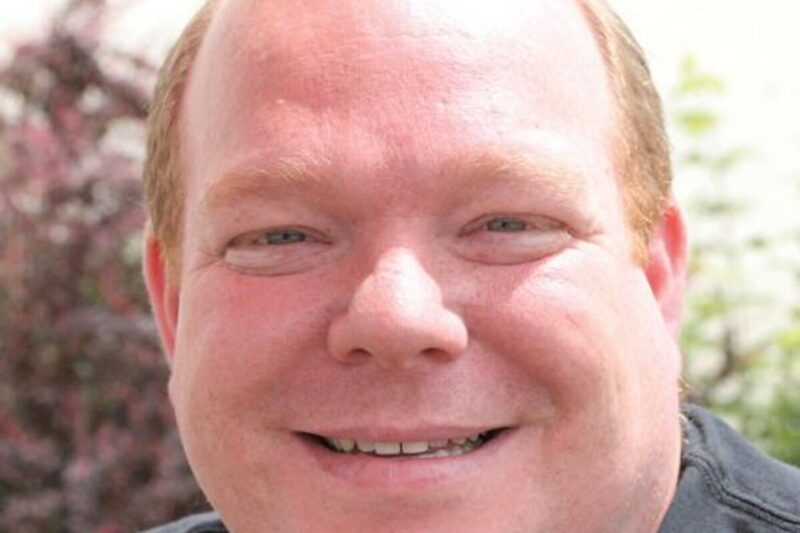Sean C. Morgan
Sweet Home School District 55 has finished a difficult year, but it will
need to keep an eye on how some
of its decisions play out, accord-
ing to Jason Redick, who was re-
appointed as board chairman in
July.
After several years of budget
cuts, the district is hearing good
news about funding, he said.
“This last year was tough,” he
said. “The budget cuts, coming up
with them – going to the four-day
week.”
The benefit of the past year’s
cuts are that the budget is more
sustainable, Redick said. The
district isn’t using as much of its
reserve funds and maintenance
funds to keep the district going.
It’s still using its reserves but
not as much as it had been, he
said. “The state’s talking a better
picture financially, but this year’s
going to be a lean year.”
Down the road, the district
may have a possibility of bringing
some things back, Redick said.
The district took a step back-
ward in vocational training with
the reduction of auto shop, he
said, but it wasn’t well-attended.
That was why it was cut back.
The district has cut back on
athletics, and some of that could
be brought back if more funding
materializes, he said. “It’s extra-
curricular, but it’s those things
that keeps people in school.”
Staff members have all tak-
en hits on salaries, Redick said.
They’ve taken pay freezes, and
they’ve had steps frozen.
“Those are all things we have
to look at, making sure that’s
made right with them,” Redick
said. The district needs to get back
on track.
Among classified staff, some
are ahead, while others are be-
hind competing school districts,
he said. Teachers are generally
behind, and he thinks that’s why
the district has had relatively high
turnover with newer teachers.
“We
need to
make sure
we are at
least com-
petitive in
that mar-
ket,” he
said.
“This
last year
was so
busy, I don’t know if any of us
have thought about a direction for
this year,” Redick said.
Last school year, the district
dealt with contracts with certi-
fied and classified staff members
and with the Charter School. It’s
also been working with the classi-
fied staff to adjust to the four-day
week.
“The community stepped up
on (the pool),” he said. “I’m hap-
py that was funded.”
The district also completed
its first year without Crawfords-
ville School.
“It hasn’t been without
bumps, but I think the kids have
adjusted to it, and they’re doing
The board will set goals for
2012-13 in September, Redick
said.
“My big thing is, we’ve asked
a lot of the community the last
couple of years,” he said. “We’ve
made cuts. All that stuff has had
an effect on the community.”
The district and board need
to reassure the community that
they’re doing all of this in the best
interest of the students, he said.
He wants to ensure that the com-
munity’s support for its schools
continues.
“We’re going to have to
watch the four-day school week
too, make sure it’s the right thing,”
Redick said. “It’s worked a lot of
places. It could work here, but
we’re going to have to make sure
it does.”
He anticipates the district will
receive a lot of input on it during
the next year, he said. He heard a
lot of input leading up to the deci-
sion last school year.
One couple he talked to didn’t
like it, Redick said, but once they
started hearing about all of the
budget cuts the district has already
made, they seemed to accept it.
In addition to saving money,
it comes with some benefits, he
said. Among them, the district
will have a more consistent week
instead of a schedule with contin-
ual three- and four-day weeks.
It should benefit the educa-
tion process, he said, but it will
have an impact on the community,
particularly parents whose sched-
ules don’t work with having their
children home on Fridays.
“One of the biggest focuses is
trying to get kids to look at going
to college,” he said. The district
has already set up several pro-
grams, including College Now
and GEAR-UP. It will add the
ACT program in 2012-13, with
retired High School Principal Pat
Stineff running the program.
“The direction the state is
taking is going push a lot more
of that,” Redick said. The state
is looking at a goal of 40 percent
of students earning a bachelor’s
degree, 40 percent earning an as-
sociates and 20 percent earning a
high school diploma.
“It’s an ambitious goal,” he
said. “And it really comes down
to the local school districts to
make that happen.”
The question is how to get
there.
“It isn’t perfect,” he said.
“There’s limits to the ACT pro-
gram, but at the same time, a lot of
these kids, that’s more than they
would’ve received on their own.”
They can come out of school
with a profession or direction rath-
er than coming out of high school
and asking, “Now what?”
“It’s been difficult,” Redick
said. “But I really am happy with
how things are going.”
The new superintendent, Don
Schrader, is doing well after his
first year, he said. “It wasn’t an
easy position he stepped into.”
The community sees him and
all the changes that have been
made, he said. “He’s the figure-
head that gets blamed, but he’s
just the one that had to make it
happen.”
It was the board that directed
him to get things started, he said.
Redick raises the point be-
cause he is aware of how people
react, he said. “I’ve been the guy
on the outside doing this.





